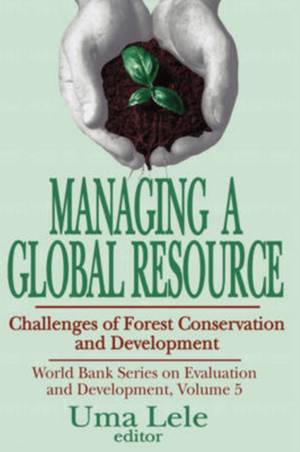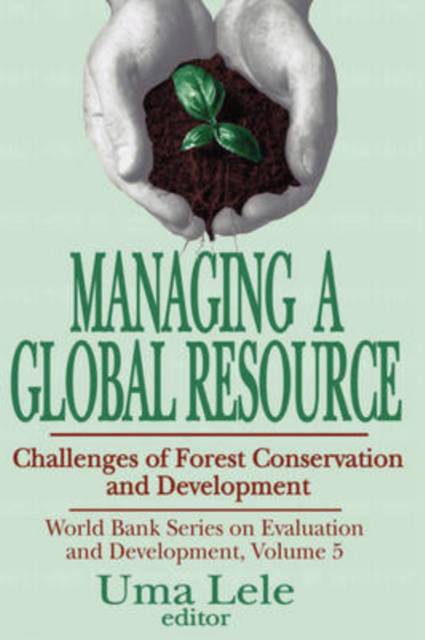
- Retrait gratuit dans votre magasin Club
- 7.000.000 titres dans notre catalogue
- Payer en toute sécurité
- Toujours un magasin près de chez vous
- Retrait gratuit dans votre magasin Club
- 7.000.0000 titres dans notre catalogue
- Payer en toute sécurité
- Toujours un magasin près de chez vous
Managing a Global Resource
Challenges of Forest Conservation and Development
Description
The rapid loss of tropical forests, particularly in the developing world, has been a global concern since the late 1980s and has prompted a variety of international initiatives to save the forests. In 1991, the World Bank responded to global concerns and to criticism by nongovernmental organizations by forming a conservation-oriented forest strategy. Managing a Global Resource is an outgrowth of the independent evaluation conducted by the World Bank's Operations Evaluation Department and discusses how effectively that strategy was implemented. In this detailed investigation, Uma J. Lele explores why the loss of forests and biodiversity has been so rapid in some developing countries (Brazil, Indonesia, and Cameroon) and not in others (China, India, and Costa Rica). She assesses future prospects for conservation in these six countries by critically examining their policies, institutional arrangements, and emerging national and international instruments to conserve forests and biodiversity. Together these six countries account for 25 percent of the world's forest cover and 44 percent of the world's population. Managing a Global Resource presents case studies of the forest sectors of each country in the context of overall development policies, interest groups, and governance issues. Lele's investigation finds a fundamental divergence in forest-rich countries between the global objectives of conservation and the local objectives of development and private profit. In some forest-poor countries, in contrast, natural resource loss has led the countries on their own accord to adopt a variety of conservation-oriented policies and programs. Despite the greater congruence between the global and national objectives in these forest-poor countries, competing demands on their resources and the constraints on their policies, institutions, and human capital make it difficult for them to affect forest and biodiversity conservation. This volume makes it clear that without substantial international financial transfers and knowledge of appropriate, location-specific solutions, much of the world's tropical forests will be lost. Even with substantial financial resources the prospects for conservation depend on a complex and dynamic set of country-specific factors. Managing a Global Resource offers unusually rich insights into the global/national interactions and lessons for future strategies. It will be of interest to conservationists and environmentalists concerned with the future of conservation in a changing environment.
Spécifications
Parties prenantes
- Editeur:
Contenu
- Nombre de pages :
- 340
- Langue:
- Anglais
- Collection :
Caractéristiques
- EAN:
- 9780765809407
- Date de parution :
- 30-09-02
- Format:
- Livre broché
- Format numérique:
- Trade paperback (VS)
- Dimensions :
- 153 mm x 229 mm
- Poids :
- 517 g

Les avis
Nous publions uniquement les avis qui respectent les conditions requises. Consultez nos conditions pour les avis.





